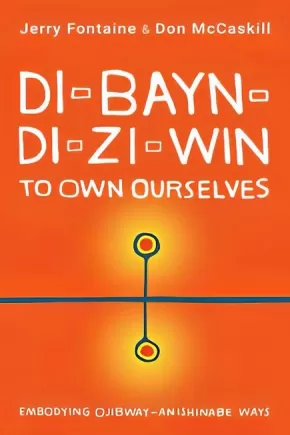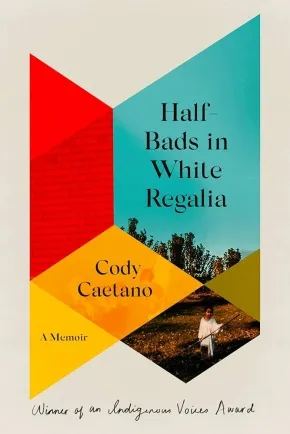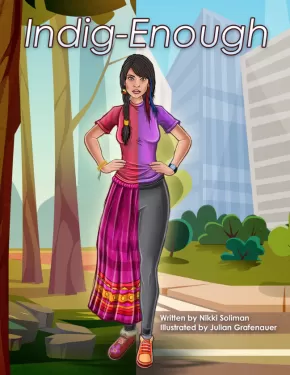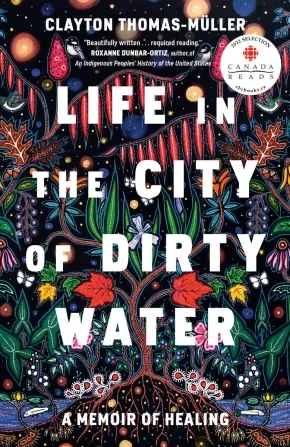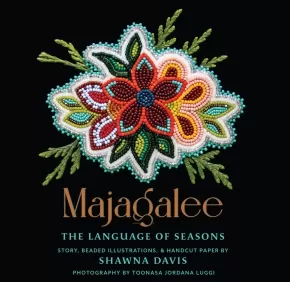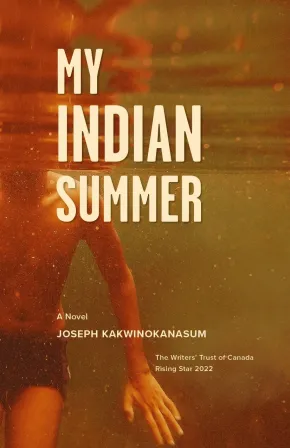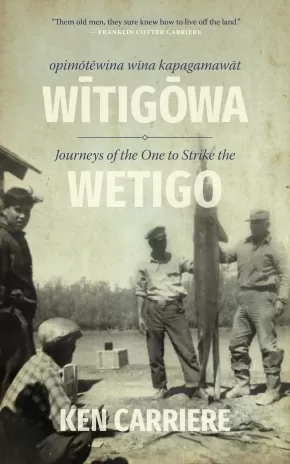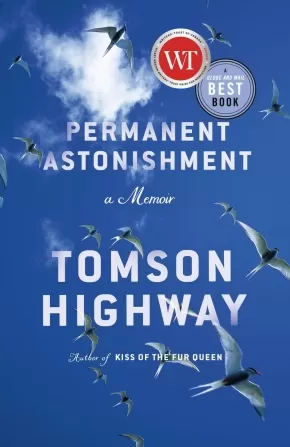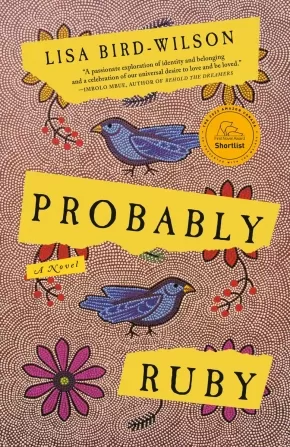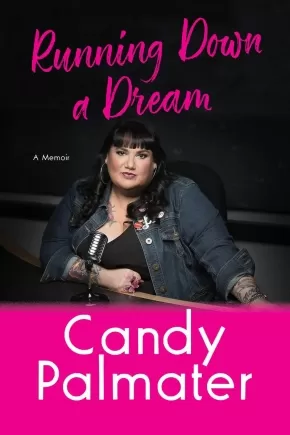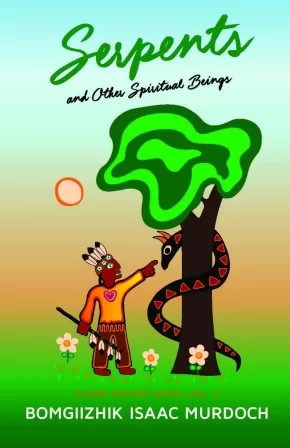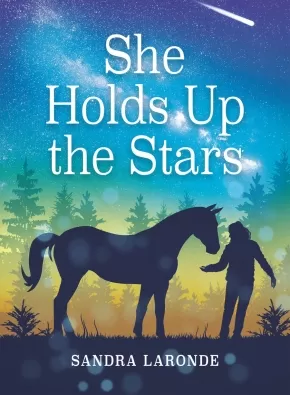
First Nation Communities Read
121
-
135
of
277 Results;
Sort By
Go To
of 19
First Nation Communities Read is an annual reading program launched in 2003 by the First Nations public library community in Ontario. First Nation Communities Read selected and other recommended titles:
- encourage family literacy, intergenerational storytelling, and intergenerational information sharing;
- are written and/or illustrated by, or otherwise involve the participation of a First Nation, Métis, or Inuit creator;
- contain First Nation, Métis, or Inuit content produced with the support of First Nation, Métis, or Inuit advisers/consultants or First Nation, Métis, or Inuit endorsement.
To view the young adult and adult selections, visit:
First Nation Communities Read - Children's Selections
First Nation Communities Read - Young Adult Selections
Creeboy
$16.95
Format:
Paperback
Text Content Territories:
Indigenous Canadian;
ISBN / Barcode: 9781459416789
Synopsis:
Synopsis:
In the literary tradition of The Outsiders comes a coming-of-age novel about teen boys and Indigenous gangs.
Sixteen-year-old Josh is no stranger to gang life. His dad, the leader of the Warriors, a gang on their reserve, is in jail, and Josh’s older brother has taken charge.
Josh’s mom has made it clear the Warriors and their violence aren’t welcome in her home — Josh’s dad and brother included. She wants Josh to focus on graduating high school. Josh is unsure whether gang life is for him — that is until gang violence arrives on his doorstep.
Turning to the Warriors, Josh, now known as “Creeboy,” starts down the path to becoming a full gang member — cutting himself off from his friends, family and community outside the gang.
It’s harder than ever for Creeboy to envision a different future for himself. Will anything change his mind?
Educator Information
Interest ages 13 to 18.
Written for reluctant readers.
Fry Reading Level: 2.0
Lexile measure: HL590L
Recommended in the Canadian Indigenous Books for Schools resource collection for grades 9 to 12 for English Language Arts.
Content Warning: References death and violence.
Additional Information
128 pages | 5.51" x 8.50" | Paperback
Di-bayn-di-zi-win (To Own Ourselves): Embodying Ojibway-Anishinabe Ways
$24.99
Format:
Paperback
Text Content Territories:
Indigenous Canadian; First Nations; Anishinaabeg; Ojibway;
Grade Levels: 12; University/College;
ISBN / Barcode: 9781459748996
Synopsis:
Synopsis:
A collaboration exploring the importance of the Ojibway-Anishinabe worldview, use of ceremony, and language in living a good life, attaining true reconciliation, and resisting the notions of indigenization and colonialization inherent in Western institutions.
Indigenization within the academy and the idea of truth and reconciliation within Canada have been seen as the remedy to correct the relationship between Indigenous Peoples and Canadian society. While honourable, these actions are difficult to achieve given the Western nature of institutions in Canada and the collective memory of its citizens, and the burden of proof has always been the responsibility of Anishinabeg.
Authors Makwa Ogimaa (Jerry Fontaine) and Ka-pi-ta-aht (Don McCaskill) tell their di-bah-ji-mo-wi-nan (Stories of personal experience) to provide insight into the cultural, political, social, and academic events of the past fifty years of Ojibway-Anishinabe resistance in Canada. They suggest that Ojibway-Anishinabe i-zhi-chi-gay-win zhigo kayn-dah-so-win (Ways of doing and knowing) can provide an alternative way of living and thriving in the world. This distinctive worldview — as well as Ojibway-Anishinabe values, language, and ceremonial practices — can provide an alternative to Western political and academic institutions and peel away the layers of colonialism, violence, and injustice, speaking truth and leading to true reconciliation.
Reviews
"Fontaine and McCaskill write in a way our own Indigenous People can understand and feel; their passion is tangible." — Graham Hingangaroa Smith, Distinguished Professor, Massey University - NZ
"There are multiple ways to inhabit our deepest principles. There are also many ways to honor land and our elders by embodying the teachings of both. Here is life found in kindness, loving, and truth. How do we access healing and how do we share this healing with others? Reading this book is one way. Tears of gratitude are for you both, Jerry Fontaine and Don McCaskill. Mahalo nui no ko ?ike nahenahe. Thank you for this mutual emergence shaped as much by friendship as it is by ?ike kupuna - elder knowledge. What is within these pages are ceremonial gifts offered to all who will take the time to connect with what is inevitable about our collective evolution." — Manulani Aluli Meyer, University of Hawai‘i
Additional Information
328 pages | 6.00" x 9.00" | Paperback
Half-Bads in White Regalia: A Memoir
$24.95
Format:
Paperback
Text Content Territories:
Indigenous Canadian; First Nations; Anishinaabeg;
Grade Levels: 12; University/College;
ISBN / Barcode: 9780735240858
Synopsis:
Synopsis:
A family tries to learn from the mistakes of past generations in this whirlwind memoir from a wholly original new voice.
The Caetanos move into a doomed house in the highway village of Happyland before an inevitable divorce pulls Cody’s parents in separate directions. His mom, Mindimooye, having discovered her Anishinaabe birth family and Sixties Scoop origin story, embarks on a series of fraught relationships and fresh starts. His dad, O Touro, a Portuguese immigrant and drifter, falls back into “big do, little think” behaviour, despite his best intentions.
Left alone at the house in Happyland, Cody and his siblings must fend for themselves, even as the pipes burst and the lights go out. His protective big sister, Kris, finds inventive ways to put food on the table, and his stoic big brother, Julian, facilitates his regular escapes into the world of video games. As life yanks them from one temporary solution to the next, they steal moments of joy and resist buckling under “baddie” temptations aplenty.
Capturing the chaos and wonder of a precarious childhood, Cody Caetano delivers a fever dream coming-of-age garnished with a slang all his own. Half-Bads in White Regalia is an unforgettable debut that unspools a tangled family history with warmth, humour, and deep generosity.
Awards
- 2023 Indigenous Voices Awards Winner: Published Prose in English
Reviews
“Memoirs are a difficult alchemy of testimony and confession, scene-making and character-building. They have to soften the hard things and show the way through at every turn—or at least they should—and that’s what Cody Caetano does in Half-Bads in White Regalia. No one gets off easy, but everyone is drawn with unflinching love and respect. Nothing seems wholly remarkable, yet everything is turned to see its beauty. Poetry permeates this prose, poetry and this wholly unique voice and style that somehow made me laugh and cry often, and in the oddest places. Read it. You won’t regret it. Telling you.”—Katherena Vermette, author of The Strangers
“A brilliant and devastating debut. This book hurtles towards difficult understandings about love and violence and family. At times I didn’t know whether I should laugh or cry, but Caetano fills each moment with such character and humanity that it’s impossible not to fall in love.” —Jordan Abel, author of NISHGA
Additional Information
280 pages | 5.62" x 8.25" | Paperback
Indig-Enough
$22.99
Artists:
Format:
Paperback
ISBN / Barcode: 9781990297427
Synopsis:
Synopsis:
Indig-Enough is a rhyming story that captures the author's journey in navigating and embracing her indigeneity, honouring her roots, and walking tall towards the future. This book can help guide young people in the exploration and the awareness of identity and intersectionality which can sometimes make it difficult to fit in and find their place.
Educator Information
Recommended by publisher for grades 3 to 7.
Additional Information
16 Pages
Inuunira: My Story of Survival
$19.95
Artists:
Format:
Hardcover
Text Content Territories:
Indigenous Canadian; Inuit;
ISBN / Barcode: 9781772274301
Synopsis:
Synopsis:
In this harrowing survival story, Brian Koonoo takes off on a hunting trip in Canada’s Arctic. After his snowmobile breaks down, his GPS loses signal, and his camping fuel runs low, he is left alone to survive for seven days. Inuunira is an Inuktitut term that means "how I'm alive," and this account shows exactly how Brian managed to stay alive. He experiences close encounters with planes, blizzards, and hunger, all while much of his gear is lost. Walking 60 kilometres in search of safety, he uses the knowledge his father and Elders taught him—modern and traditional means of navigation, finding water, making shelters, and keeping his spirits up—to continue on. With photos, illustrations, and diagrams throughout, readers are sure to be inspired by this story of strong will and hope.
Additional Information
37 pages | 6.75" x 9.50" | Hardcover
Life in the City of Dirty Water: A Memoir of Healing (PB)
$19.95
Format:
Paperback
Text Content Territories:
Indigenous Canadian; First Nations; Cree (Nehiyawak); Swampy Cree ; Mathias Colomb First Nation;
ISBN / Barcode: 9780735240087
Synopsis:
Synopsis:
An electrifying memoir that braids together the urgent issues of Indigenous rights and environmental policy, from a nationally and internationally recognized activist and survivor.
There have been many Clayton Thomas-Mullers: The child who played with toy planes as an escape from domestic and sexual abuse, enduring the intergenerational trauma of Canada's residential school system; the angry youngster who defended himself with fists and sharp wit against racism and violence, at school and on the streets of Winnipeg and small-town British Columbia; the tough teenager who, at 17, managed a drug house run by members of his family, and slipped in and out of juvie, operating in a world of violence and pain.
But behind them all, there was another Clayton: the one who remained immersed in Cree spirituality, and who embraced the rituals and ways of thinking vital to his heritage; the one who reconnected with the land during summer visits to his great-grandparents' trapline in his home territory of Pukatawagan in northern Manitoba.
And it's this version of Clayton that ultimately triumphed, finding healing by directly facing the trauma that he shares with Indigenous peoples around the world. Now a leading organizer and activist on the frontlines of environmental resistance, Clayton brings his warrior spirit to the fight against the ongoing assault on Indigenous peoples' lands by Big Oil.
Tying together personal stories of survival that bring the realities of the First Nations of this land into sharp focus, and lessons learned from a career as a frontline activist committed to addressing environmental injustice at a global scale, Thomas-Muller offers a narrative and vision of healing and responsibility.
Reviews
“Clayton Thomas-Müller—Cree poet and environmental warrior dedicated to decolonization—has crafted an awesome, lyrical memoir that captures the experiences of urban Indigenous youth facing poverty, drugs, alcohol, domestic violence, and juvenile detention. Most, like Clayton, inherited the intergenerational trauma of residential schools. Clayton found a way to escape trauma and poverty in order to fight for his people. This beautifully written book is required reading for everyone who cares about justice for the survivors of genocide who continue to survive in colonized conditions. It offers a path to liberation that may also be the way to saving the earth and humanity itself.” — Roxanne Dunbar-Ortiz, author of An Indigenous Peoples’ History of the United States
“This book is an adventure story in every way. A life of drug dealers and crackhouses and guns; leaving that behind for a remarkable time of spiritual and personal growth; and there’s the ongoing adventure of working desperately to protect the planet and its sacred places. Clayton Thomas-Müller relates these adventures in ways that will help everyone through unfamiliar terrain—he’s a trustworthy guide and an authentic storyteller. In a moment when Indigenous people around the world are coming to the very fore of the most crucial fights, this volume will broaden your understanding in powerful ways. And you won’t forget its scenes any time soon.”—Bill McKibben, co-founder of 350.org and author of Earth and Oil and Honey
Additional Information
240 pages | 5.19" x 7.97" | Paperback
Majagalee: The Language of Seasons
$22.00
Artists:
Format:
Hardcover
Text Content Territories:
Indigenous Canadian; First Nations; Gitxsan (Gitksan);
ISBN / Barcode: 9781990458002
Synopsis:
Synopsis:
Shawna Davis invites the reader to explore each of the four seasons through her beautiful words and lush, unforgettable, beaded illustrations.
We begin in Gwooyim (Spring) when the Majagalee, the Sim Algyax word for “flower,” are just beginning to sprout. We then move on to Sint (Summer) when Grandmother Sun stays in the sky a bit longer. Next there is Xwsit (Fall), just as Summer begins to get sleepy, and Maadim (Winter) where the snow has fallen and the freezer is full.
This is a story of nature, its importance to our lives, and why it must be cared for and respected.
Toonasa Jordana Luggi’s lovely, rich, and nearly tactile photographs are the perfect complement to Shawna’s hand-beaded artwork and wonderful, hand-cut paper backgrounds.
Includes Pronunciation Guides.
Reviews
“...simple, evocative poetry is culturally specific, rooted in a deep love of the land and the people around her but it’s also relatable to readers of different backgrounds. The lyrical verse in Majagalee makes it an ideal read-aloud book.... Majagalee is an elevated concept book. It introduces readers to the seasons, the plants and animals of the Northwest Coast, Sim Algyax, Indigenous art, and the importance of all these things to Gitksan culture. Despite its apparent simplicity, Majagalee is a complex and brilliantly constructed book. It will appeal to Indigenous and non-Indigenous readers alike, and for teachers and parents, it serves as an outstanding example of a book that demonstrates the ongoing presence and beauty of Indigenous cultures in what is now known as Canada..” – Quill & Quire, starred review
Educator Information
Juvenile Fiction. This picture book explores the four seasons on the northwest coast of what is currently British Columbia from a Gitksan perspective.
Additional information
Pages: 40
My Indian Summer
$22.95
Format:
Paperback
Text Content Territories:
Indigenous Canadian; First Nations; Cree (Nehiyawak);
Reading Level: N/A
ISBN / Barcode: 9781990160127
Synopsis:
Synopsis:
Three kookums, a man named Crow, two best friends, and a drug dealer . . . twelve-year-old Hunter may be getting out of Red Rock sooner than he hoped.
For Hunter Frank, the summer of ’79 begins with his mother returning home only to collect the last two months’ welfare cheques, leaving her three “fucking half-breeds” to fend for themselves. When his older sister escapes their northern BC town and his brother goes to fight forest fires, Hunter is on his own, with occasional care coming from a trio of elders—his kookums—and companionship from his two best friends.
It’s been a good summer for the young entrepreneur, but the cash in the purple Crown Royal bag hidden in his mattress still isn’t enough to fund his escape from his monstrous mother and the town of Red Rock. As the Labour Day weekend arrives, so does a new friend with old wisdom and a business opportunity that might be just a boy at the crossroads needs. My Indian Summer is the story of a journey to understanding that some villains are also victims, and that while reconciliation may not be possible, survival is.
Reviews
"He breathes life into his characters at their first mention and draws you into the gossamer web of his vibrant storytelling, from which there is no escape other than to read a story through to its end." -Darrel J. McLeod
Additional Information
240 pages | 5.50" x 8.50" | Paperback
Opimōtēwina wīna kapagamawāt Wītigōwa / Journeys of The One to Strike the Wetigo
$24.95
Format:
Paperback
Text Content Territories:
Indigenous Canadian; First Nations; Cree (Nehiyawak); Swampy Cree ; Woodland Cree; Rocky Cree; Peter Ballantyne Cree Nation;
Grade Levels: 12; University/College;
ISBN / Barcode: 9780889779044
Synopsis:
Synopsis:
A first-hand account of a Swampy Cree boy’s experiences growing up in the Saskatchewan River Delta, one of the world’s largest inland deltas and one of North America’s most important ecosystems.
Depicting an Indigenous lifestyle that existed in Northern Saskatchewan way past the Fur Trade era, Ken Carriere shares his first-hand account of experiences as a young boy helping his father trapping, fishing, and hunting in the Saskatchewan River Delta.
Opimōtēwina wīna kapagamawāt Wītigōwa / Journeys of The One to Strike the Wetigo contains interviews with elders, stories, personal photographs, and poetry, along with some original Swampy Cree translations.
Creating a vivid portrait of what it was like to live off the land, Carriere also reveals how hydro-electric dams and other Western endeavours have impacted the livelihoods of so many Northern communities.
Reviews
"Wow! This is an excellent resource for those engaged in, or interested in, land-based education. It gives a wonderful, engaging account of living on the land in the past and, to some extent, in the present day. It's also a good resource for N-dialect speakers." —Solomon Ratt, author of The Way I Remember and Beginning Cree
Additional Information
328 pages | 5.00" x 8.00" | Paperback
Permanent Astonishment: A Memoir (PB)
$22.00
Format:
Paperback
Text Content Territories:
Indigenous Canadian; First Nations; Cree (Nehiyawak);
Reading Level: N/A
ISBN / Barcode: 9780385696227
Synopsis:
Synopsis:
Capricious, big-hearted, joyful: an epic memoir from one of Canada’s most acclaimed Indigenous writers and performers.
Tomson Highway was born in a snowbank on an island in the sub-Arctic, the eleventh of twelve children in a nomadic, caribou-hunting Cree family. Growing up in a land of ten thousand lakes and islands, Tomson relished being pulled by dogsled beneath a night sky alive with stars, sucking the juices from roasted muskrat tails, and singing country music songs with his impossibly beautiful older sister and her teenaged friends. Surrounded by the love of his family and the vast, mesmerizing landscape they called home, his was in many ways an idyllic far-north childhood. But five of Tomson's siblings died in childhood, and Balazee and Joe Highway, who loved their surviving children profoundly, wanted their two youngest sons, Tomson and Rene, to enjoy opportunities as big as the world. And so when Tomson was six, he was flown south by float plane to attend a residential school. A year later Rene joined him to begin the rest of their education. In 1990 Rene Highway, a world-renowned dancer, died of an AIDS-related illness.
Permanent Astonishment: Growing Up in the Land of Snow and Sky is Tomson's extravagant embrace of his younger brother's final words: "Don't mourn me, be joyful." His memoir offers insights, both hilarious and profound, into the Cree experience of culture, conquest, and survival.
Additional Information
352 pages | 5.15" x 7.97" | Paperback
Probably Ruby: A Novel (PB)
$19.95
Format:
Paperback
Text Content Territories:
Indigenous Canadian;
ISBN / Barcode: 9780385696708
Synopsis:
Synopsis:
For readers of Tommy Orange's There There and Terese Marie Mailhot's Heart Berries, Probably Ruby is an audacious, brave and beautiful book about an adopted woman's search for her Indigenous identity.
Relinquished as an infant, Ruby is placed in a foster home and finally adopted by Alice and Mel, a less-than-desirable couple who can't afford to complain too loudly about Ruby's Indigenous roots. But when her new parents' marriage falls apart, Ruby finds herself vulnerable and in compromising situations that lead her to search, in the unlikeliest of places, for her Indigenous identity.
Unabashedly self-destructing on alcohol, drugs and bad relationships, Ruby grapples with the meaning of the legacy left to her. In a series of expanding narratives, Ruby and the people connected to her tell their stories and help flesh out Ruby's history. Seeking understanding of how we come to know who we are, Probably Ruby explores how we find and invent ourselves in ways as peculiar and varied as the experiences of Indigenous adoptees themselves. Ruby's voice, her devastating honesty and tremendous laugh, will not soon be forgotten.
Probably Ruby is a perfectly crafted novel, with effortless, nearly imperceptible shifts in time and perspective, exquisitely chosen detail, natural dialogue and emotional control that results in breathtaking levels of tension and points of revelation.
Reviews
"Lisa Bird-Wilson holds all her characters with such compassion, even when they go spectacularly off-course, they remain sympathetic in this wildly electric novel. Each fragment builds a provocative mosaic, refusing easy redemption, embracing Ruby's complex, volatile emotional landscape with masterstrokes of observation and insight." —Eden Robinson, author of the Trickster Trilogy
"Brilliant. . . . Lisa is an extraordinary stylist, and this novel explores Indigenous women's lives in a way that is empowering and that doesn't follow the usual tropes of trauma and victimization. I think of her as a Michif Alice Munro." —Warren Cariou
"Soft as it is hard, Probably Ruby reminds us how displacement comes to be commonplace in the lives of some. Never before have I seen a writer represent the constellation of people impacted by this kind of fractured kinship with such righteous critique that is at once restrained and nuanced. Each member of Ruby's web of people is shaped with care, empathy, and grace—even the most unforgivable ones. Simply put, Probably Ruby is one of the very best things I’ve ever read about adoption, race, and want." —Jenny Heijun Wills, author of Older Sister. Not Necessarily Related.
Additional Information
272 pages | 5.18" x 8.00" | Paperback
Rabbit Chase
$13.99
Artists:
Format:
Paperback
Text Content Territories:
Indigenous Canadian; First Nations; Anishinaabeg; Ojibway;
ISBN / Barcode: 9781773216195
Synopsis:
Synopsis:
Anishinaabe culture and storytelling meet Alice in Wonderland in this coming-of-age graphic novel that explores Indigenous and gender issues through a fresh yet familiar looking glass.
Aimée, a non-binary Anishinaabe middle-schooler, is on a class trip to offer gifts to Paayehnsag, the water spirits known to protect the land. While stories are told about the water spirits and the threat of the land being taken over for development, Aimée zones out, distracting themselves from the bullying and isolation they’ve experienced since expressing their non-binary identity. When Aimée accidentally wanders off, they are transported to an alternate dimension populated by traditional Anishinaabe figures in a story inspired by Alice in Wonderland.
To gain the way back home, Aimée is called on to help Trickster by hunting down dark water spirits with guidance from Paayehnsag. On their journey, Aimée faces off with the land-grabbing Queen and her robotic guards and fights the dark water spirits against increasingly stacked odds. Illustrated by KC Oster with a modern take on their own Ojibwe style and cultural representation, Rabbit Chase is a story of self-discovery, community, and finding one’s place in the world.
Reviews
“A unique creative product that provides just enough footing for curious readers to explore further on their own. The palette plays a significant role here, with the brown and sepia tones of the real world replaced with dreamy jewel and inky hues, and silhouettes are used particularly effectively, creating an otherworldliness that walks the line between whimsy and menace. The blend of fantasy, gender identity, and supernatural creatures will likely please fans of Ostertag’s THE WITCH BOY.” — The Bulletin of the Center for Children’s Books
“The recognizable highlights of Lewis Carroll’s surreal adventure make for an excellent way into what will be unfamiliar cultural ground for many young readers. Even as this engages with several significant and timely social issues (race, gender, bullying) in an accessible way, it also opens a window to seldom explored tribal cultures.” — Booklist
“A moving graphic novel that touches on identity and cultural legacy, and representation that is sure to impact young readers.” — School Library Journal
Educator Information
Recommended for ages 8 to 12.
Includes some Ojibwe language. Translations in the book by Aarin Dokum.
Aarin Migiziins (Little Eagle) Dokum ndizhinikaas, Wiikwemkoosing, Wiikwemkoong ndo njibaa. (My name is Aarin Dokum and my Nishinaabe noozwin/Anishinaabe name is Migiziins. I am from Wikwemkoosing, Wikwemikong Ontario, Canada.)
Aarin was raised by his fluent Nishinaabemwin speaking family and community. He left home at an early age to live in Moosonee, Ontario, Canada and spent three years as a restaurant cook in an isolated Cree community. After a short return home to Wikwemikong, he moved to Lansing, Michigan where he has been living ever since. He shares Anishinaabemwin as a language consultant through Nokomis Cultural Heritage Center. He is grateful for fluent elders and active givers of what he considers the most important part of any culture—language.
Additional Information
120 pages | 7.00" x 10.00" | Paperback
Running Down a Dream: A Memoir
$32.99
Format:
Hardcover
Text Content Territories:
Indigenous Canadian; First Nations; Mi'kmaq;
Reading Level: N/A
ISBN / Barcode: 9781443455091
Synopsis:
Synopsis:
A powerful, often funny, always inspiring memoir from a beloved comedian, professional orator, actor, entertainer, gone all too soon.
Candy Palmater loved to connect with people. She lived for the stage, her effervescent presence on television and radio ignited and inspired audiences, touching them with her warm, often spicy humour as well as her positive message about love and kindness. And she always believed that it is never too late to pursue our dreams and that we should never allow others to negatively influence our life’s desires.
Candy described herself as a queer Mi’kmaw lawyer-turned-comic raised by bikers in rural New Brunswick and on the surface, she met with enormous success – on leaving government and the practice of law, she started a career as a stand-up comedian, which led to starring in five successful seasons of her own national TV show, hosting many radio shows and co-guest hosting CTV’s The Social, and landing a recurring role on a hot new sitcom in her fifties. But she is the first to tell you she made all kinds of mistakes and experienced all kinds of failure along the way. Running Down a Dream is Candy’s story, in her own words, of the highs, the lows, the moments of doubt, the turning points when she listened to her gut and tuned out all the people saying no. It’s also a tribute to her family and the love that always bolstered her, despite their own hard times. She shares her stories to inspire us to embrace our failures and to believe in ourselves. And most importantly, Running Down a Dream is a call to love ourselves for who we are.
The world lost Candy in late 2021, and yet she left us with this gift -- a memoir and a message that will inspire us for years to come.
Additional Information
304 pages | 6.00" x 9.00" | Hardcover
Serpents and Other Spiritual Beings
$25.00
Format:
Paperback
Text Content Territories:
Indigenous Canadian; First Nations; Anishinaabeg; Ojibway;
Reading Level: N/A
ISBN / Barcode: 9781928120353
Synopsis:
Synopsis:
Serpents and Other Spiritual Beings is the second book in a series by renowned Ojibwe storyteller Bomgiizhik Isaac Murdoch, following on The Trail of Nenaboozhoo and Other Creation Stories (2019). Serpents and Other Spiritual Beings is a collection of traditional Ojibwe/Anishinaabe stories transliterated directly from Murdoch's oral storytelling. Part history, legend, and mythology, these are stories of tradition, magic and transformation, morality and object lessons, involving powerful spirit-beings in serpent form. The stories appear in both English and Anishinaabemowin, with translations by Patricia BigGeorge. Murdoch's traditional-style Ojibwe artwork provides beautiful illustrations throughout.
Reviews
"'When the Thunderbirds and Serpents fight, they feed off each other, you know great medicine gets cast across the land. We get our life from that.' So writes storyteller Isaac Murdoch as he shares his Elders' stories about tunnels beneath the earth, rich laws, philosophies, teachings, power from up there, down there, and all around us, until we too hear the thunders as they bring us into the world of wahkotowin, all our relations. How privileged and blessed we are to be able to read the Ahtyokaywina of our people."--Maria Campbell, author of Halfbreed
"Gather around, for here are oral stories transcribed so they retain the flavour of a narrative spoken aloud, and translated into Anishinaabemowin; perfect for language-learners. I love the way these stories infuse the spirit world into an every-day context, these are not dusty old legends, but a living way of seeing the world around us in the here and now."--Nathan Niigan Noodin Adler, author of Ghost Lake
Educator & Series Information
Dual-Language: English and Anishinaabemowin.
Anishinaabemowin translation by Patricia BigGeorge, who is an Anishinaabemowin speaker and translator.
This book is Vol. 2 in the Ojibwe History Series.
Additional Information
100 pages | 5.50" x 8.50" | 20 illustrations | Paperback
She Holds Up the Stars
$11.95
Format:
Paperback
Text Content Territories:
Indigenous Canadian;
ISBN / Barcode: 9781773210650
Synopsis:
Synopsis:
A young Indigenous girl searching for a sense of home finds strength and courage in her gifts, her deepening connection to the land, and her own cultural awakening in this moving coming-of-age story.
The last thing that twelve-year old Misko wants to do is to move away from the city to spend time on the rez with her grandmother. And yet she feels strangely compelled to go, drawn by a pull that she feels in her dreams. Maybe she can finally find out what happened to her mother, who mysteriously disappeared when Misko was four years old.
Misko’s relationship to the rez shifts when she encounters a spirited horse named Mishtadim. But Mishtadim is being violently broken by the rancher next door and his son Thomas. Misko and Thomas clash at first, only to find themselves drawn together by the wild horse. As Misko slowly discovers her unique bond with Mishtadim, she feels a sense of belonging and comes to understand the beauty of the world all around her.
She Holds Up the Stars is a powerful story of reconciliation and the interwoven threads that tie us to family, to the land, and to our own sense of self.
Educator Information
Recommended for ages 10 to 14.
Additional Information
192 pages | 5.50" x 7.50" | Paperback
Sort By
Go To
of 19




